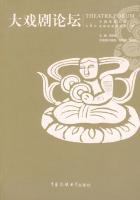In America also we run perpetually to the (supposed) humour of slang, a form not used in England. If we were to analyse what we mean by slang I think it would be found to consist of the introduction of new metaphors or new forms of language of a metaphorical character, strained almost to the breaking point. Sometimes we do it with a single word. When some genius discovers that a "hat" is really only "a lid" placed on top of a human being, straightway the word "lid"
goes rippling over the continent. Similarly a woman becomes a "skirt," and so on ad infinitum.
These words presently either disappear or else retain a permanent place, being slang no longer. No doubt half our words, if not all of them, were once slang. Even within our own memory we can see the whole process carried through; "cinch" once sounded funny; it is now standard American-English. But other slang is made up of descriptive phrases. At the best, these slang phrases are--at least we think they are--extremely funny. But they are funniest when newly coined, and it takes a master hand to coin them well. For a supreme example of wild vagaries of language used for humour, one might take O. Henry's "Gentle Grafter." But here the imitation is as easy as it is tiresome. The invention of pointless slang phrases without real suggestion or merit is one of our most familiar forms of factory-made humour. Now the English people are apt to turn away from the whole field of slang. In the first place it puzzles them--they don't know whether each particular word or phrase is a sort of idiom already known to Americans, or something (as with O. Henry) never said before and to be analysed for its own sake. The result is that with the English public the great mass of American slang writing (genius apart) doesn't go. I have even found English people of undoubted literary taste repelled from such a master as O. Henry (now read by millions in England) because at first sight they get the impression that it is "all American slang."
Another point in which American humour, or at least the form which it takes, differs notably from British, is in the matter of story telling. It was a great surprise to me the first time I went out to a dinner party in London to find that my host did not open the dinner by telling a funny story; that the guests did not then sit silent trying to "think of another"; that some one did not presently break silence by saying, "I heard a good one the other day,"--and so forth. And I realised that in this respect English society is luckier than ours.
It is my candid opinion that no man ought to be allowed to tell a funny story or anecdote without a license. We insist rightly enough that every taxi-driver must have a license, and the same principle should apply to anybody who proposes to act as a raconteur. Telling a story is a difficult thing--quite as difficult as driving a taxi.
And the risks of failure and accident and the unfortunate consequences of such to the public, if not exactly identical, are, at any rate, analogous.
This is a point of view not generally appreciated. A man is apt to think that just because he has heard a good story he is able and entitled to repeat it. He might as well undertake to do a snake dance merely because he has seen Madame Pavlowa do one. The point of a story is apt to lie in the telling, or at least to depend upon it in a, high degree. Certain stories, it is true, depend so much on the final point, or "nub," as we Americans call it, that they are almost fool-proof. But even these can be made so prolix and tiresome, can be so messed up with irrelevant detail, that the general effect is utter weariness relieved by a kind of shock at the end. Let me illustrate what I mean by a story with a "nub" or point. I will take one of the best known, so as to make no claim to originality--for example, the famous anecdote of the man who wanted to be "put off at Buffalo." Here it is:
A man entered a sleeping-car and said to the porter, "At what time do we get to Buffalo?" The porter answered, "At half-past three in the morning, sir." "All right," the man said;
"now I want to get off at Buffalo, and I want you to see that I
get off. I sleep heavily and I'm hard to rouse. But you just make me wake up, don't mind what I say, don't pay attention if I kick about it, just put me off, do you see?" "All right, sir," said the porter. The man got into his berth and fell fast asleep. He never woke or moved till it was broad daylight and the train was a hundred miles beyond Buffalo. He called angrily to the porter, "See here, you, didn't I tell you to put me off at Buffalo?" The porter looked at him, aghast. "Well, I declare to goodness, boss!" he exclaimed;
"if it wasn't you, who was that man that I threw off this train at half-past three at Buffalo?"
Now this story is as nearly fool-proof as can be. And yet it is amazing how badly it can be messed up by a person with a special gift for mangling a story. He does it something after this fashion:
"There was a fellow got on the train one night and he had a berth reserved for Buffalo; at least the way I heard it, it was Buffalo, though I guess, as a matter of fact, you might tell it on any other town just as well--or no, I guess he didn't have his berth reserved, he got on the train and asked the porter for a reservation for Buffalo--or, anyway, that part doesn't matter--say that he had a berth for Buffalo or any other place, and the porter came through and said, 'Do you want an early call?'--or no, he went to the porter--that was it--and said--"
But stop. The rest of the story becomes a mere painful waiting for the end.
Of course the higher type of funny story is the one that depends for its amusing quality not on the final point, or not solely on it, but on the wording and the narration all through. This is the way in which a story is told by a comedian or a person who is a raconteur in the real sense. When Sir Harry Lauder narrates an incident, the telling of it is funny from beginning to end. When some lesser person tries to repeat it afterwards, there is nothing left but the final point. The rest is weariness.















